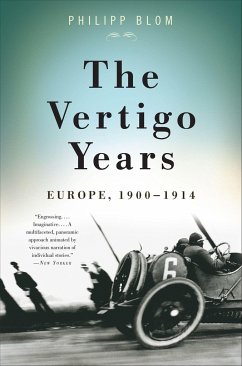From 1900 to 1914, Europe was a world adrift. In this short span of time--between the death of Queen Victoria and the outbreak of World War I--a new world order was emerging. In "The Vertigo Years," historian Philipp Blom chronicles this conflicted epoch year by year, creating a unique anatomy of a pivotal era. From the advent of fascism to cubist painting, from the theory of relativity to consumer culture, Blom shows how the years between 1900 and 1914 molded the entire twentieth century. With deftly-told anecdotes and a novelist's sensitivity for poignancy, Blom's work brings the wonders, horrors, and fears of the early twentieth century vividly to life.

Sturm
Für die im 19. Jahrhundert Geborenen waren die letzten 14 Jahre vor Ausbruch des Ersten Weltkriegs 1914 die „goldene Zeit“. Das Urteil verdankte sich einem verklärten Blick auf eine Zeit, die Philipp Blom in einer anspruchsvollen, sehr gut lesbaren historischen Kolportage geschildert hat. Jedem Jahr dieser letzten Frist des Friedens vor dem großen Krieg hat Blom ein Kapitel gewidmet. Am Anfang steht die Pariser Weltausstellung von 1900, die ein Emblem war für den Optimismus, mit dem die Menschen das neue Jahrhundert begrüßten. Hier kündigte sich an, was in den nächsten Jahren eine ungeheure Dynamik auslöste, die das Leben der Menschen und ihren Blick auf die Welt veränderten. Die Folgen davon zeigten sich nicht nur an den wissenschaftlichen Entdeckungen, sondern auch an sozialen künstlerischen und politischen Entwicklungen, die das 20. Jahrhundert prägten. Johannes Willms
Philipp Blom:
Der taumelnde Kontinent. Europa 1900-1914.
dtv, München 2011.
528 Seiten,
14,90 Euro.
SZdigital: Alle Rechte vorbehalten - Süddeutsche Zeitung GmbH, München
Jegliche Veröffentlichung und nicht-private Nutzung exklusiv über www.sz-content.de








